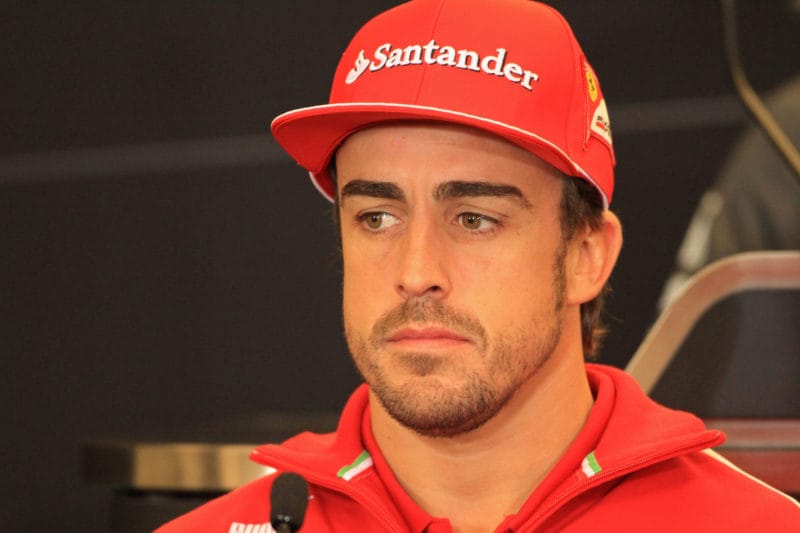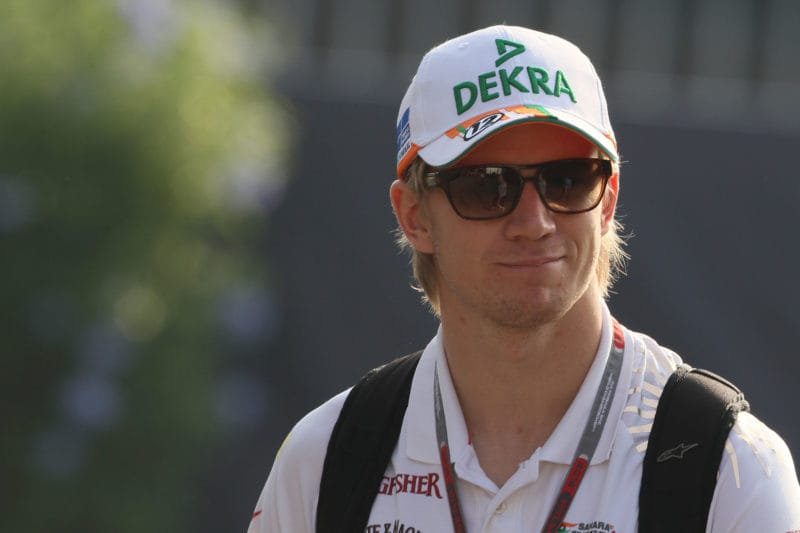Let’s clear one thing up from the off. This weekend’s event at the Shanghai International Circuit is not the 1000th Formula 1 race. Nor is it the 1000th grand prix. It is the 1000th event to count towards the world championship in F1’s history, but even this is caveated.
In the first eleven seasons of the fledgeling series, America’s most famed open-cockpit race, the Indianapolis 500 had a slot on the calendar. This was to put the ‘world’ in the world championship, in a championship otherwise dominated by visits to European circuits. These eleven races are something of an anomaly as F1 drivers routinely ignored the bother of a trip stateside to rural Indiana. But in the index of F1’s annals, they stand, as worthy and important as the other 988 races to date.
Indeed, there’s also the case of the 1952 and 1953 seasons where the F1 world championship was run to Formula 2 regulations; the legacy of a shortage of appropriate machinery following Alfa Romeo’s withdrawal after cleaning house in ’51, as Juan Manuel Fangio took the first of his five drivers’ crowns.
But, like the Indy 500s, the races of these two campaigns stand in the count towards 1,000, meaning that China will hold the accolade of staging the milestone race in the planet’s premier racing series.
So, with 999 races to chose from, there is plenty of competition to select one of them to be proclaimed as the best world championship grand prix. Such a debate is rightly hotly contested with Brazil 2008 and Canada 2011 having strong claims to having the honour bestowed. But there is one race, some eight seasons ago, that stands head and shoulders above the rest: the 2012 Brazilian Grand Prix.
Such a question as to which race can be proclaimed the best is, of course, rooted, like an old Oak, in the grounds of subjectivity. There are myriad reasons why one would have a single grand prix entrenched in their mind as the best.
Your chosen race might have fallen on your birthday or that of a loved one; you could have got married or met the love of your life the very day that the race took place; perhaps your favourite driver stormed through the field from the back to claim an unlikely points finish or race win, or maybe even the drivers’ championship. Or maybe a backmarker did something memorable, truly unexpected given the limitations of their equipment that hooked you in and made a lifelong F1 fan out of you.
Whatever your reasoning for selecting the race you have, it is based in the subjectivity of your circumstance. ‘But isn’t this article then just your own opinion?’, you might be asking while reading this. In a word: yes, it is. However, the mechanisms of objectivity and social media allow a non-biased conclusion to be reached, that, by whatever criteria you use to measure, leads back to the 878th world championship grand prix taking its place on the pedestal as the best race of all.
What makes a good grand prix?
The recipe of what makes good grand prix is non-fluid and something which most fans can coalesce around, often doing so by sharing their opinions via the Deep Blue of social media. The first ingredient of which is tension. A tense Sunday afternoon spent chuntering from a sedentary position at your TV as the drama plays out is one of the thrills of watching and reacting to live, elite sport, where such fine margins mean the difference between winning and the first of the losers. And the afternoon/early evening (for UK viewers) of 25 November 2012 had tension and drama rarely seen in F1.
The race was a season-finale title decider between the blue corner of the reigning double world champion, unquenchable in his thirst to shatter all the records held by his compatriot, the retiring 91-time race winner, and to-date, only septuple world champion, Michael Schumacher. And in the red corner, the Spanish matador who had man-handled his recalcitrant Cavallino Rampante to the cusp of joining the elite band of triple world champions. This was Sebastian Vettel vs Fernando Alonso played out in the amphitheatre of the Autodromo Jose Carlos Pace.

Fernando Alonso had dragged an uncompetitive Ferrari to the cusp of the world championship in 2012.
Credit: (Octane Photographic Ltd.)
As the crowds began to enter the Interlagos circuit, the atmosphere grew thicker and heavier. Expectations of a gladiatorial fight were carried on the Brazilian winds, swirling through the paddock, scented by the carnival-like beat of the drums and local delicacies. These two men were about to enter the Colosseum to take the field of play for the biggest fight of their lives: to join the gods of their chosen profession.
And while we’re on the subject of a deity greater than humankind, the race also had another vital ingredient: rain. Now, it is not a prerequisite for the wet stuff to make an appearance for grands prix to be considered a classic, far from it. Cast your mind back to the 2014 Bahrain Grand Prix, (incidentally the 900th race) or at Monza in 1971, where the top five finishers were separated by just 0.061s at the flag. But when another variable is added to the complicated mix of a grand prix, the excitement level builds. All the greats have destroyed the rest in the wet, and there have been some eye-catching performances – chiefly Vittorio Brambilla in Austria 1975. To quote former US Defence Secretary Donald Rumsfeld, rain is a “known unknown.”
As the storm brewed above Sao Paulo, it was just a matter of time, before the rain joined the party, thus presenting Alonso with the slither of hope he was longing for.
Vettel was fourth on the grid, behind the McLaren’s of Lewis Hamilton and Jenson Button and also his Red Bull team-mate, Mark Webber. Alonso languished in eighth after qualifying but was promoted to seventh on the starting grid after a penalty for Williams’ Pastor Maldonado. As the cars sat waiting for the lights to go out, Vettel held a 13-point advantage over Alonso, meaning the Ferrari driver had to take a podium finish and hope Vettel finished tenth or lower. In a fundamentally slower car than the RB12, Alonso needed a miracle.
A slow start for Vettel and being crowded out by Webber at Turn 1 left him mired in midfield of the 24-strong pack as it charged down the back-straight toward Turn 4, Descida do Lago. Turning into the left-hander, Vettel was clattered into by the Williams of Bruno Senna and was lucky not to retire on the spot with the damage sustained to the floor, radiators, and aerodynamics on the left-hand side of the chassis. Rolling gently down the hill, Vettel, stone-dead last, regrouped and set about the charge that would claim him a third world championship.
Meanwhile, at Turn 1 on the second lap, Alonso’s rear-gunner, team-mate Felipe Massa, hung Webber out to dry, allowing the wily Spaniard to slip through into third place. Championship winning territory, just as Vettel was beginning to catch the backmarkers. By the end of lap five, the German had risen to thirteenth place, despite Red Bull chief technical officer Adrian Newey’s concerns about the long-term lifespan of the crippled car.
This was the ultimate game of cat-and-mouse. The cat was severely handicapped, but you always felt would succeed in its mission, while the mouse had stolen an early advantage, but coming with the caveat that a mistake was fairly predictable. When it came, on Lap 5, it was the decisive blow. Alonso ran slightly wide into the braking zone of Turn 1, allowing Force India’s Nico Hulkenberg through to inherit third place. Never again would Alonso be in a title-winning position despite the many twists to come.
What about Brazil 2008?
Now, at this point, a legitimate question you might be asking is: ‘What makes this any different from Brazil 2008?’ – or some variant thereof. Both races were held at the same venue, both final race showdowns for the title, and both influenced the weather. The answer is very simple: Hulkenberg. Not the driver, himself, but more what he represented during the race in question.
Fans clamour for a driver in a midfield team, with no real likeliness of continued success, to take it to the big boys, and bloody their noses, a la Vettel himself, while at Toro Rosso, in the torrential conditions of the 2008 trip to Italy. In today’s F1, such a performance is, of course, unlikely, much before the 2021 regulations reset. But Hulkenberg’s endeavours that day, some 121 races ago, was the last occasion a genuine midfield team had a shot at claiming victory.
The very nature a David taking it to Goliath is one of the feelgood factors of elite sport. An example in another sport would be when Leicester City confounded 5,000-1 expectations to win the 2015-16 Premier League title. Claudio Ranieri’s side captured the hearts of neutrals and completed the most unlikely of successes; indeed, it was The Foxes’ first-ever top-flight title.
This is an advantage 2012 has over 2008. In the latter, Massa comfortably won from pole, doing all he could to try and snatch the title from Hamilton, whose exploits that afternoon are well-documented. There was no midfield interloper to affect the race, and 2008 falls slightly short as a result.
In the event, Hulkenberg’s performance should have come as no shock. Prior to the race, Force India was confident of a strong result in Brazil for drivers Hulkenberg and Paul di Resta. It was at Interlagos in 2010 that German Hulkenberg (then at Williams) annexed the first pole of his career in wet/dry conditions – similar to race day two years later. He had qualified in sixth, among the front runners, on merit and was well poised to take a shock result.

Nico Hulkenberg’s performance in the race was outstanding, and the last time a midfield team had a genuine shot at victory.
Credit: Octane Photographic Ltd.
After slipping by Alonso, he set off after the two McLaren’s, who were having their own private duel up-front having checked out. As Hamilton pitted for intermediates as the drizzle intensified, Hulkenberg made the same inspired call as Button, who as often shone in the tricky conditions, and opted to carry on with the slicks. It was inspired as the drizzle stopped seconds after Hamilton stopped, leaving Button and Hulkenberg with a 20-second plus advantage over the pack of Hamilton, Alonso, Kamui Kobayashi and Vettel.
On Lap 19, having carved chunks out of Button’s lead, Hulkenberg dived to the inside of the Senna S and snatched the lead. The next tour around, Alonso – always thinking two steps ahead – in championship-losing position in fourth, called for the safety car to clear (limited debris.)
Seven laps circulating behind the safety car later, Hulkenberg floored it and opened up a big gap to Hamilton, who had jumped Button, suffering from graining, on the second lap after the restart. In complete control, and driving serenely, at Turn 8, he drifted wide and half-spun the VJM05, dropping behind Hamilton.
Amid Lap 54 drama in the pits for Vettel, who, not being able to communicate with his pitwall due to radio problems, had come in for slicks, just as another rain shower arrived overhead. He came in again, to the surprise of the team a lap later for the correct intermediates – Winning a world championship was never meant to be simple, Hulkenberg attempted an inside lunge on Hamilton, his final race for McLaren before moving to Mercedes for 2013, at Turn 1.
Complicating matters was the presence of a gaggle of backmarkers. Hulkenberg got out of shape, and slid into the McLaren’s front suspension, destroying it, while being rewarding for the clumsy move by the stewards with a drive-through that would drop him to fifth. Button sailed through, to take a lead he would never lose, for the fifteenth, and final victory of his career.
Not over yet
So near, yet so far for Hulkenberg as the drama was still not over. As well as the battle for the world championship up front, a fight for survival was raging at the back, as Marussia and Caterham fought desperately over tenth in the constructors’, that would unlock precious prize money for 2013.
By virtue of Timo Glock’s twelfth place finish in Singapore for Marussia, Caterham needed eleventh or better to move ahead of their rivals, as both had failed to score a point in the previous 19 grands prix. In the dying laps, Charles Pic was holding the prized position for the former, (Pic would be moving from Marussia to Caterham for 2013), but Vitaly Petrov, dropped for the following campaign, sliced by the Frenchman to nab the most coveted eleventh place in F1 history and secure tenth in the constructors’ for Caterham – all the good it did them.
Meanwhile, Schumacher, the old regenmeister, himself had worked the Mercedes W03 up to sixth, the position Vettel would need if Alonso (now second after the Hamilton/Hulkenberg incident) won the race. In a handing over of the baton, Schumacher waved his countryman through with a handful of laps left in his career to secure Vettel a deserved world title.
Like every football match can’t be a 3-3 thriller, not every grand prix will be brilliant. That is why, when grands prix explode and all hell breaks loose, they are cherished and revered decades later.
The combination of events of the 2012 Brazilian Grand Prix has not been seen before or since. Only two final race deciders have been needed since 2012, in ’14 and ’16 when Hamilton and Nico Rosberg fought for the crown in the Abu Dhabi desert (each picking up a title apiece). And downpours of a nature to unduly disrupt a grand prix aren’t as frequent in the middle-east as in a country sitting on the equator. That is a shame, as the extra unpredictable climatic nature of the Brazilian weather was another factor the teams to cope with.

Vettel’s car suffered from radio problems, which led to confusion at the final round of pitstops.
Credit: Clive Mason/Getty Images/ Red Bull Content Pool)
Moreover, the route F1 has travelled since 2012, when there were seven different winners from five different teams in the first seven races, makes a performance of Hulkenberg’s virtually impossible. Yes, a midfield team can sneak a podium on an off-day for four of the top six, but with the relative reliability of today’s 1.6l V6 turbo-hybrids, that happens but once a season at best.
Quite simply, the events of the 2012 Brazilian Grand Prix produced one of the most remarkable sporting events of all time, and quite objectively, the best Formula 1 world championship grand prix of them all. So far.



